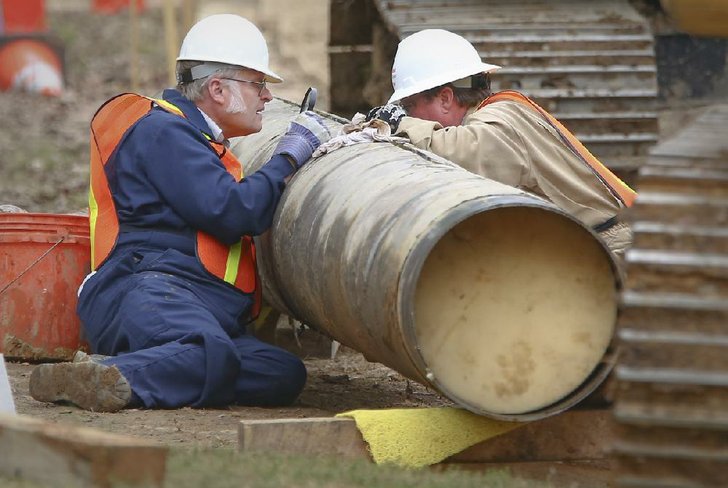Exxon Mobil has urged a federal regulatory agency to withdraw or change a decision fining the oil giant $2.6 million for safety violations that the government says preceded an oil spill in a Mayflower neighborhood more than two years ago.

RECENT RELATED COVERAGE
Exxon Mobil Pipeline Co., a subsidiary of Exxon Mobil Corp., submitted a 26-page petition Wednesday asking the federal Pipeline and Hazardous Materials Safety Administration to reconsider the findings, handed down earlier this month.
The government found that the company had committed nine violations dealing with integrity management, or safety, practices. The pipeline, built in 1947-48, cracked open in Mayflower's Northwoods neighborhood, spilling tens of thousands of gallons of crude oil into the neighborhood, drainage ditches and a cove of Lake Conway.
Among other things, the safety administration ordered the company to modify its integrity management program to ensure that risks are adequately identified, especially those common to pre-1970 pipes made with low-frequency, electric-resistance welding. The industry has known for decades that such pipe -- which no longer is made -- is prone to the kind of seam cracks that ruptured in the Pegasus Pipeline at Mayflower.
In the petition, Exxon Mobil said the safety administration's ruling "ignores or selectively mischaracterizes several material facts to support its findings."
"It is undisputed that [low-frequency, electric-resistance welded] pipe is not prohibited for use in commerce," Exxon Mobil wrote. "In fact, roughly one-quarter of all oil pipelines in the United States at present were manufactured by [low-frequency, electric-resistance welded] processes."
Exxon Mobil contended in the petition that the company has "a robust [integrity management program] that addresses the risk of seam failure on [such] pipe, and that its program is similar to those used throughout the industry."
Exxon Mobil said the safety administration's ruling in the Pegasus pipe rupture was the agency's first enforcement action to decide this issue.
"As a result, the outcome of the final Agency action in this matter will affect not only the Respondent's operations, but the entire industry," Exxon Mobil wrote. "It would require significant revision and cost for Respondent, and the industry as a whole, to change and apply the requested revisions to all [electric-resistance welded] pipe."
Exxon Mobil noted that the safety administration concluded that the company had "improperly determined that the [Pegasus] line was not susceptible to seam failure."
Exxon Mobil disputed that position, saying its process to evaluate the line was developed by two men previously commissioned by the safety administration to prepare a report aimed at informing pipeline operators about methods to determine whether a pipe is prone to seam failure.
"If the Agency's Final Order is allowed to stand, this Company and the entire industry would be required to make significant changes to their pipeline integrity management programs without clear regulations or fair notice," Exxon Mobil wrote. "It would cost [the] industry hundreds of millions of dollars in applying additional and more frequent seam tools or in performing potentially unnecessary and destructive hydrotests."
Most of the 850-mile-long Pegasus Pipeline, which runs from the Gulf Coast of Texas to Patoka, Ill., has been shut down since the Mayflower spill. Only a 211-mile section of the line, all in Texas, has resumed operation.
Exxon Mobil also asked that the agency withdraw or "substantially" reduce the monetary penalty.
State Desk on 10/23/2015
